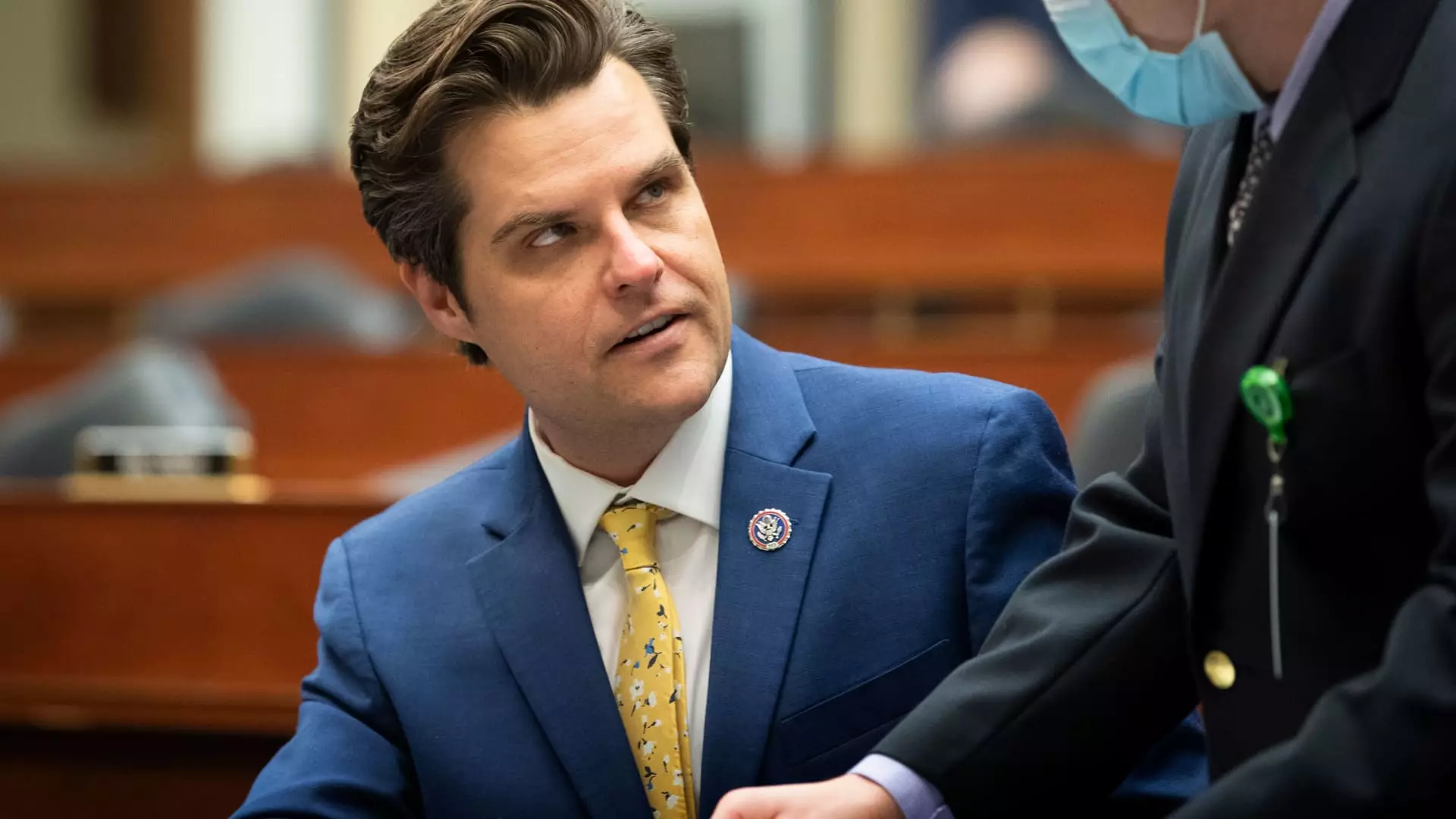In a significant development that underscores the complexities of congressional ethics, the House Ethics Committee has opted to release its report concerning allegations of sexual misconduct and illicit drug use against former Republican Representative Matt Gaetz. This decision marks a notable pivot from a previous deadlock in November when the committee remained uncertain about releasing its findings due to Gaetz’s resignation from Congress. The reported findings could emerge as early as this week, coinciding with the end of the current congressional session, thereby shedding light on a case that has become emblematic of deeper ethical questions in American politics.
Gaetz, known for his polarizing persona and outspoken defense, reacted vehemently against the committee’s actions. In a post on social media platform X, he reiterated his denial of any wrongdoing, particularly regarding allegations of sexual relations with minors, which he contends are unfounded and lack any substantiation in a legal context. Such claims, he argues, would not withstand judicial scrutiny, and his insistence on this point underscores a broader tactic often utilized by accused public figures: the framing of allegations as politically motivated attacks.
Gaetz’s tenure in the House was marked by both prominence within his party and shadows of controversy. A prominent ally of Donald Trump, Gaetz resigned amid allegations that soon cast a pall over his political ambitions, notably when he was under consideration for a role as U.S. Attorney General. However, his withdrawal from that nomination was soon overshadowed by ongoing scrutiny over his behavior, particularly in relation to claims of sexual misconduct and drug use. The Ethics Committee’s renewed investigation this May, which resumed following the conclusion of a Department of Justice inquiry that did not result in charges, reflects a persistent concern among lawmakers regarding Gaetz’s reported conduct while serving in Congress.
The ethics probe is examining a range of behaviors attributed to Gaetz, including alleged sexual misconduct, drug use, and improper acceptance of gifts. However, the most pressing issue revolves around whether Gaetz attempted to obstruct investigations into his conduct, raising crucial questions about accountability in public office. This follows a troubling trend highlighted by past incidents that have led to both ethical and legal ramifications for congressional members.
As the ethics committee gears up to make its findings public, the political ramifications of the report loom large. Gaetz has criticized the decision to release the report, arguing that having a report published about him without an opportunity for rebuttal infringes on his rights and sets a concerning precedent for how lawmakers are treated post-tenure. House Speaker Mike Johnson’s intervention, urging restraint in publicizing the findings, emphasizes the contentious nature of the ethics complaint process and the implications it carries for the institutional integrity of Congress.
Historically, the Ethics Committee has, on occasion, made disclosures pertaining to former members, such as the investigations surrounding Bill Boner and Mark Foley. The decision-making reached by the House ethics panel reflects the tensions between party loyalty, personal conduct, and public accountability, a balancing act that continues to challenge the core principles of ethical governance.
The case of Matt Gaetz represents a critical juncture in the ongoing discourse surrounding ethical accountability in politics. The forthcoming report from the House Ethics Committee is anticipated to provide a detailed account of the allegations against Gaetz and the committee’s findings, a move that may either vindicate his claims of innocence or establish a framework for future ethical investigations within the political arena.
Ultimately, the release of this report should serve as a reminder of the necessity for transparency and accountability among elected officials. As citizens seek assurance that their representatives adhere to ethical standards, the actions of the Ethics Committee will contribute significantly to shaping the public’s trust in government. The response from both politicians and the broader public to these findings will reveal much about the current state of political ethics in America and the ongoing struggle to reconcile personal conduct with public service.


Leave a Reply